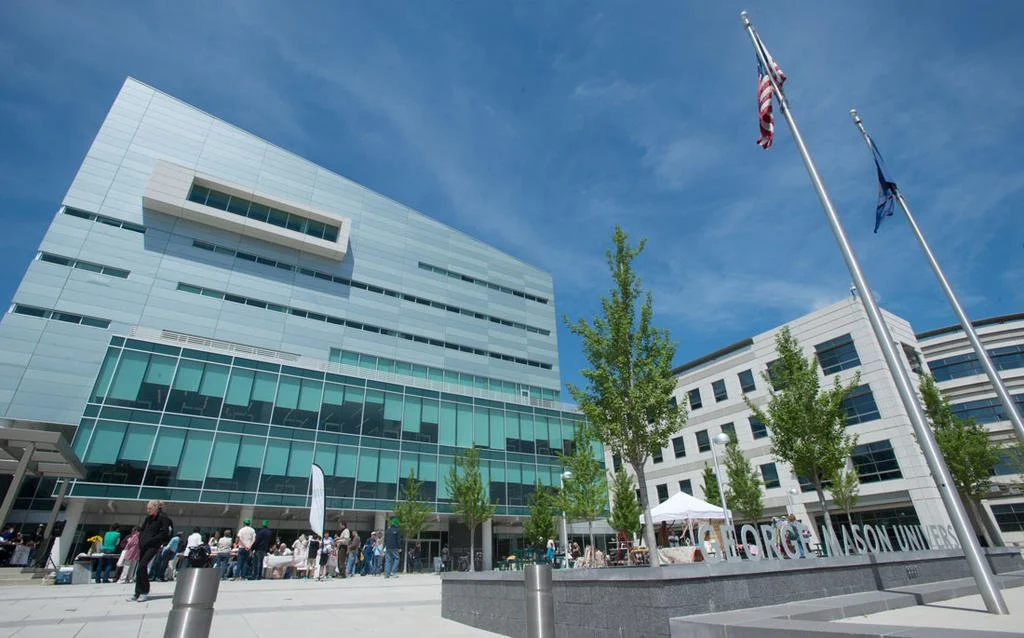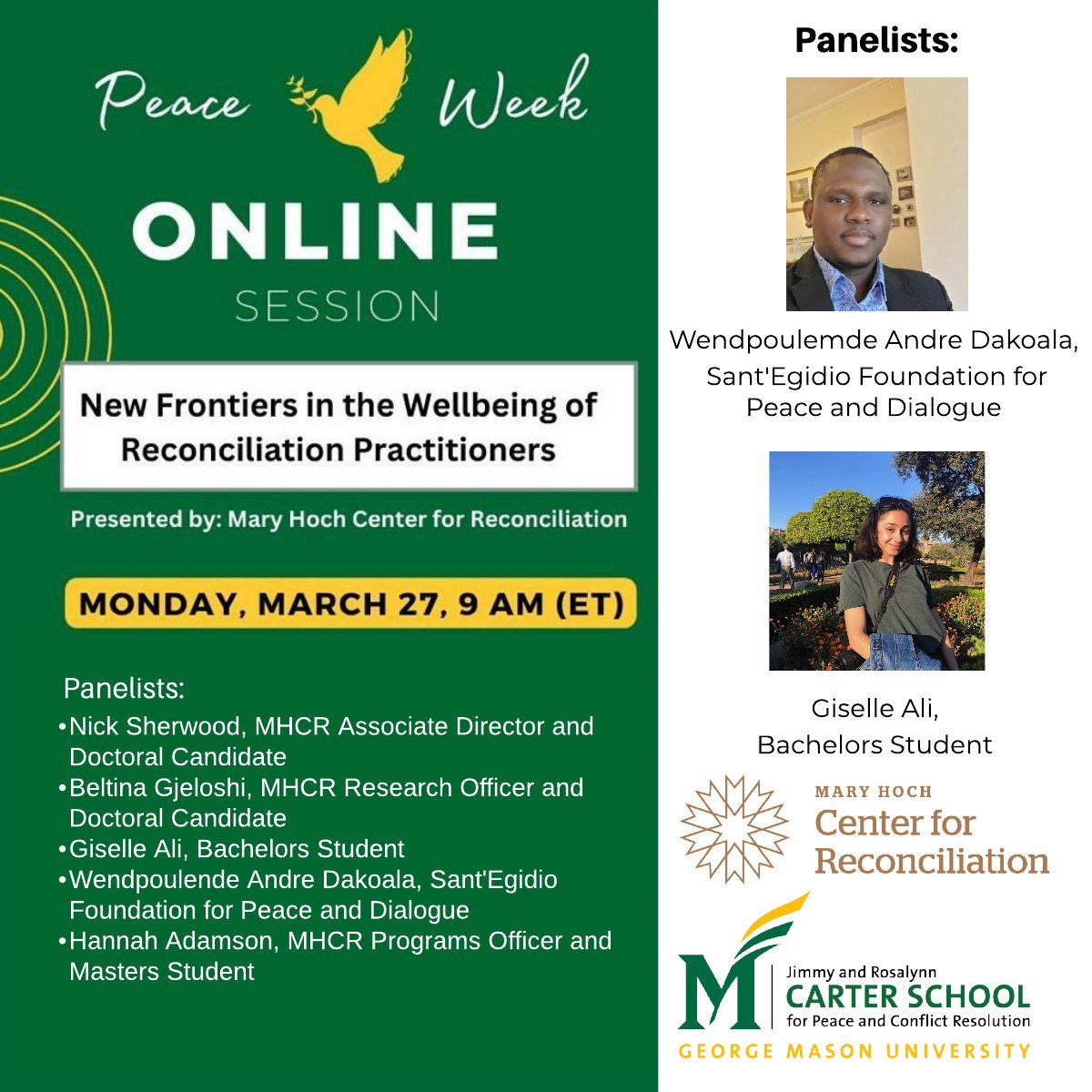By: Amanda Peña
On Monday, March 27th, 2023 at 9 AM ET, the Mary Hoch Center for Reconciliation (MHCR) hosted a webinar during the Spring 2023 Carter School Peace Week event titled, “New Frontiers on the Wellbeing of Reconciliation Practitioners'' with guest panelists, Giselle Ali, an undergraduate student at the Carter School, and Wendpoulemde André Dakoala from the Sant’Egidio Foundation for Peace and Dialogue (SFPD). There were 40 participants who attended and gained knowledge on the topic. This event was facilitated and presented by Research Officer, Beltina Gjeloshi, and Program Officer, Hannah Adamson, with the welcome by Associate Director, Nicholas Sherwood.
The purpose of this event was to discuss the importance of taking care of one’s wellbeing while engaging in reconciliation work. The event was split into a grounding exercise led by Ali, a brief introduction to the Insider Reconciler study being conducted in the Transformation and Reconciliation Lab (TRL) at MHCR, a corresponding policy brief members of the lab developed using research findings, the importance of well being and grounding, experience from practitioners, and ended with a Q&A session.
Before conducting the Insider Reconciler study, we at MHCR realized that, despite growing interest, the wellbeing of practitioners in the field has largely been under investigation and not prioritized. As a result of their work engaging with communities in conflict and experiencing conflict themselves, insider reconcilers experience secondary trauma, burnout, and compassion fatigue. With a strong sense of commitment to facilitating healing, insider reconcilers both have unique sources of strength they can draw upon and also face challenges in caring for themselves, often with limited resources. This is what we have identified in our study and its ongoing literature review thus far. Peacebuilders experience trauma and burnout. They do the good work of helping take care of others, but forget to take care of themselves. Addressing this, MHCR has developed the Insider Reconciler study to identify and share the work peacebuilders are doing within their own communities and learn more about how they take care of their wellbeing. While continuing the study, the team created a draft policy brief to share the importance of wellbeing in peacebuilding among organizations and agencies and how wellbeing practices may be implemented, especially for insider reconcilers.
Both Ali and Dakoala spoke on wellbeing practices and practitioner experiences, respectively. Ali is currently finishing her undergraduate degree in Conflict Analysis and Resolution at the Carter School and has a minor in wellbeing, and is also working towards her yoga instructor certification. Ali spoke on the importance of recognizing when one’s ‘cup’ is ‘empty or full,’ and for each person to learn what works best for them. Dakoala is the SFPD administrator and is the director of the Burkina Faso Diaspora peace project. He spoke on the importance of prayer, friendship, and service, and how he applies them to his everyday life as a practitioner.
Both Ali and Dakoala spoke on wellbeing practices and practitioner experiences, respectively. Ali is currently finishing her undergraduate degree in Conflict Analysis and Resolution at the Carter School and has a minor in wellbeing, and is also working towards her yoga instructor certification. Ali spoke on the importance of recognizing when one’s ‘cup’ is ‘empty or full,’ and for each person to learn what works best for them. Dakoala is the SFPD administrator and is the director of the Burkina Faso Diaspora peace project. He spoke on the importance of prayer, friendship, and service, and how he applies them to his everyday life as a practitioner.
During the Q&A portion of the webinar, the panel received questions regarding wellbeing and healing. The questions asked were:
What are specific ways they take care of their wellbeing?
How can the Carter School could improve on the wellbeing practices for their students and faculty?
In this context of measuring healing, how is 'healing' defined interpersonally and communally?
These questions rounded out the Peace Week event nicely as they encapsulated its purpose and how this work needs to be continued. The event brought together the importance of wellbeing, reconciliation practices, empowering insider reconcilers, and the relationship between the three. It was a great representation of what MHCR stands for and what we hope to teach and be a resource for others.
We leave you with this: Learn about what ‘fills your cup.’ It may not look the same for everyone, but it is of great importance. Practice these methods, get familiar with them, and carry them with you.
To watch this Peace Week event in its entirety, click here.

